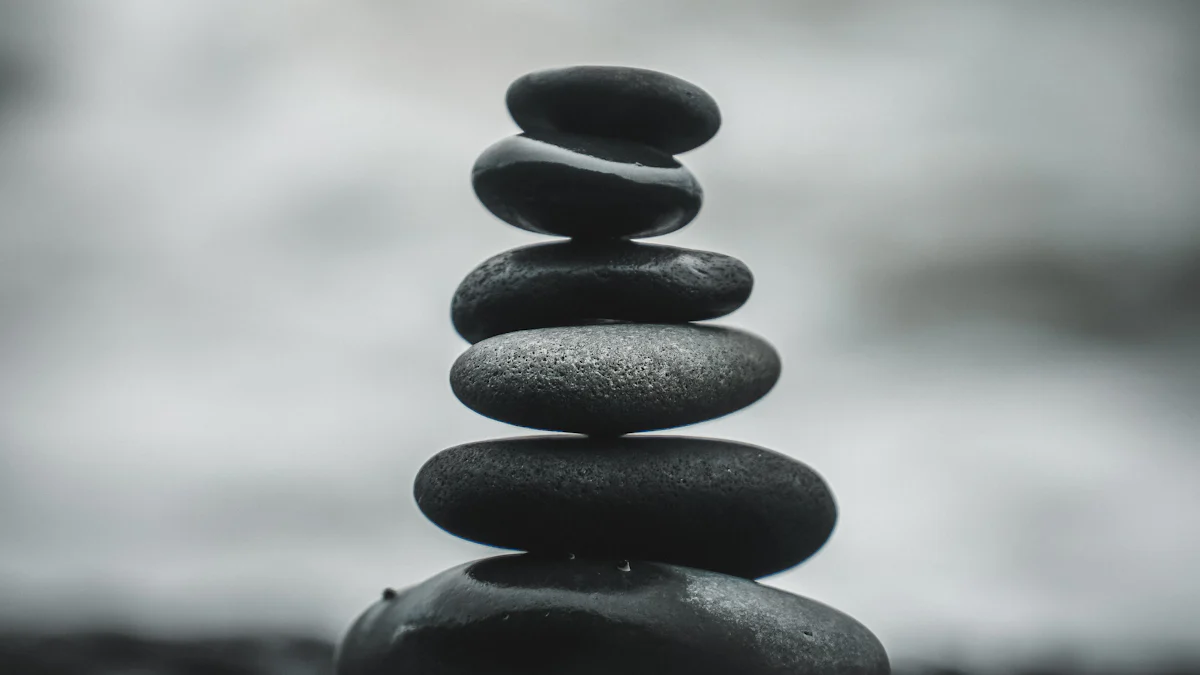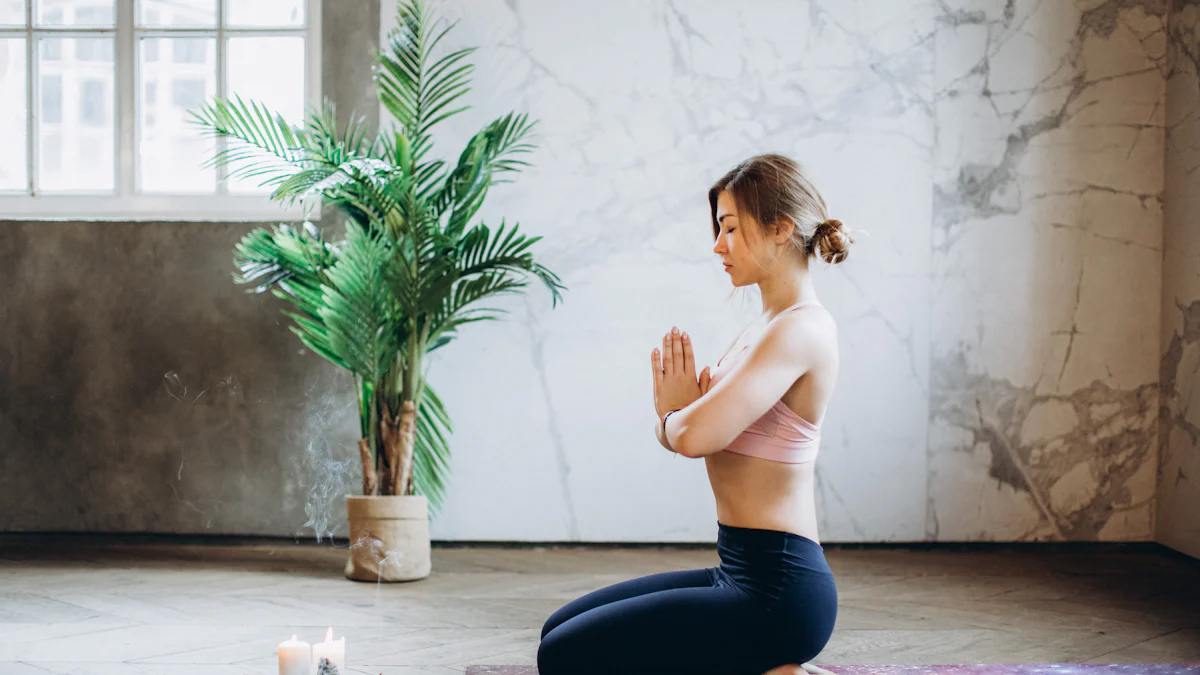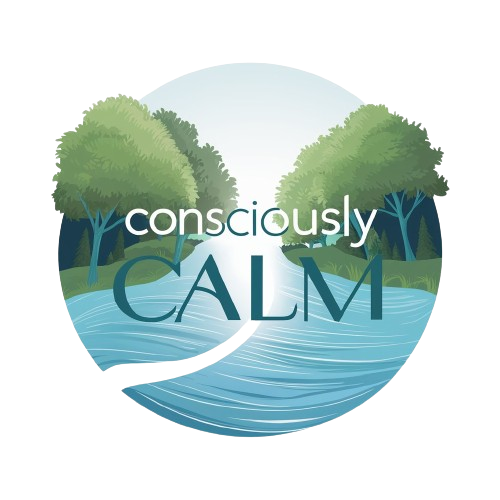10 Effective Tips to Soothe Anxious Thoughts

Anxiety affects millions worldwide. Around 19.1% of U.S. adults experience anxiety disorders annually. These anxious thoughts can disrupt daily life, making simple tasks feel overwhelming. Managing these thoughts becomes crucial for a balanced life. You might wonder, "How to have calmer thoughts?" The journey involves understanding anxiety's impact and exploring effective strategies. Embracing these techniques can lead to a more peaceful mindset and improved well-being. Let's dive into practical tips that can help soothe those racing thoughts and bring tranquility to your day.
Understanding Anxiety

What is Anxiety?
Definition and symptoms
Anxiety often feels like a constant worry or fear. Many people experience anxiety as a response to stress. The body reacts with symptoms like a racing heart, sweating, or feeling tense. Some people might feel restless or have trouble concentrating. Anxiety can make someone feel on edge or irritable. These feelings can vary from mild to severe.
Common triggers
Certain situations can trigger anxiety for many individuals. Public speaking, meeting new people, or facing a big decision can cause anxious thoughts. Sometimes, past experiences or trauma can lead to anxiety. Genetic factors also play a role in developing anxiety disorders. Environmental factors, like a stressful job or relationship issues, can contribute too. Recognizing these triggers helps in managing anxiety better.
The Impact of Anxiety on Mental Health
Short-term effects
Anxiety affects mental health in several ways. In the short term, anxiety can cause feelings of panic or dread. People might experience headaches or stomachaches. Sleep problems often occur when anxiety takes over. Concentration becomes difficult, affecting daily tasks and responsibilities. These short-term effects can disrupt a person's routine.
Long-term consequences
Long-term anxiety can lead to more serious health issues. Chronic anxiety might increase the risk of heart disease or diabetes. Mental health suffers when anxiety persists for a long time. Depression often accompanies prolonged anxiety. Relationships might strain under the weight of constant worry. Addressing anxiety early can prevent these long-term consequences. Mindfulness practices offer significant benefits for managing anxiety.
How to have calmer thoughts?

Practice Mindfulness
Mindfulness helps you stay present. You focus on the here and now. This practice calms racing thoughts. Dr. Ana Bodnar, an expert in clinical psychology, believes mindfulness can soothe anxiety. You can try simple techniques.
Techniques for mindfulness meditation
Start with a quiet space. Sit comfortably. Close your eyes. Focus on your breath. Notice each inhale and exhale. Thoughts may wander. Gently bring attention back to breathing. Use guided meditations if needed. Apps like Headspace or Calm offer great options. Practice daily for best results.
Benefits of mindfulness
Mindfulness reduces stress. It improves concentration. You feel more grounded. Anxiety decreases over time. You gain better control over thoughts. Mindfulness enhances overall well-being. You become more aware of emotions. This awareness leads to healthier responses.
Deep Breathing Exercises
Breathing deeply calms the mind. Scott Dehorty, a licensed clinical social worker, says breathing is the top technique for reducing anxiety quickly. You can use deep breathing anywhere.
How to perform deep breathing
Find a comfortable position. Place one hand on the chest. Put the other hand on the belly. Inhale slowly through the nose. Feel the belly rise. Exhale through the mouth. Feel the belly fall. Repeat this process several times. Focus on the rhythm of breathing.
Immediate effects on anxiety
Deep breathing lowers heart rate. Stress levels drop. You feel more relaxed. Anxiety symptoms decrease. You regain control over emotions. Breathing exercises offer instant relief. You can use them anytime anxiety strikes.
Physical Activity
Exercise benefits mental health. Regular physical activity reduces anxiety. Decker, J. T., Brown, J. L., Ashley, W., & Lipscomb, A. E. highlight exercise as a self-care tool. You can choose activities you enjoy.
Types of exercises beneficial for anxiety
Walking offers gentle movement. Yoga combines stretching and breathing. Running releases endorphins. Swimming provides full-body relaxation. Dancing lifts the mood. Choose what feels right for you. Consistency matters more than intensity.
How exercise reduces stress
Exercise releases endorphins. These chemicals boost mood. Physical activity distracts from worries. You focus on movement instead. Exercise improves sleep quality. Better sleep reduces anxiety. You build resilience over time.
Journaling
Journaling offers a safe space for your thoughts. Writing down feelings helps you understand them better. Dr. Ana Bodnar, a clinical psychologist, emphasizes journaling as a tool to neutralize anxiousness. You can start by setting aside a few minutes each day. Grab a notebook or open a digital document. Write whatever comes to mind. No need for perfect grammar or spelling. Just let the words flow.
How to start a journaling practice
Starting a journaling practice feels easy. Choose a time that suits you best. Morning or evening works well for many. Find a quiet spot where you won't get interrupted. Begin with a prompt like, "What am I feeling right now?" or "What made me smile today?" Consistency is key. Try to write daily, even if it's just a few sentences. Over time, you'll notice patterns and gain insights into your emotions.
Reflecting on thoughts and emotions
Reflecting on your journal entries helps you see progress. Look back at past entries. Notice any recurring themes or triggers. This reflection provides clarity. Understanding your thoughts leads to better emotional responses. You might discover solutions to problems you hadn't considered before. Journaling becomes a powerful tool for managing anxiety and promoting calmer thoughts.
Limit Caffeine and Sugar Intake
Caffeine and sugar can amplify anxiety. These substances stimulate the nervous system. You might feel jittery or restless after consuming them. Reducing intake can lead to a more peaceful mindset. Scott Dehorty, a licensed clinical social worker, notes that calming techniques work best when the body isn't overstimulated.
Effects of caffeine and sugar on anxiety
Caffeine increases heart rate and blood pressure. Sugar causes energy spikes followed by crashes. Both can worsen anxiety symptoms. You might experience heightened alertness or irritability. Cutting back on these substances helps stabilize mood. You'll likely notice a decrease in anxious thoughts.
Healthier alternatives
Consider healthier alternatives to caffeine and sugar. Herbal teas offer a soothing option. Chamomile or peppermint tea promotes relaxation. Fresh fruits provide natural sweetness without the crash. Whole grains and nuts offer sustained energy. These choices support a balanced diet and contribute to overall well-being.
Establish a Routine
A structured routine provides stability. Knowing what to expect each day reduces uncertainty. Decker, J. T., Brown, J. L., Ashley, W., & Lipscomb, A. E. highlight the importance of routines in reducing anxiety. Establishing a routine helps you manage time effectively.
Importance of a structured daily routine
A daily routine creates a sense of order. You know what tasks to tackle and when. This structure minimizes stress. You feel more in control of your day. Routines also improve productivity. Completing tasks becomes easier with a plan in place.
Tips for creating a routine
Start by listing daily activities. Prioritize tasks based on importance. Allocate specific times for each task. Include breaks to recharge. Flexibility is important too. Adjust your routine as needed. Remember to schedule time for self-care. Exercise, meditation, and journaling fit well into a daily plan. A well-balanced routine supports mental health and fosters calmer thoughts.
Seek Professional Help
Recognizing when to seek professional help can make a big difference in managing anxiety. Therapy offers a safe space to explore feelings and develop coping strategies. Dr. Ana Bodnar, a clinical psychologist, emphasizes the importance of therapy for those struggling with persistent anxious thoughts. Therapy provides tools to understand and manage anxiety effectively.
When to consider therapy
Consider therapy if anxiety interferes with daily life. Struggles with work, relationships, or personal well-being might indicate the need for professional support. Persistent feelings of worry or fear can signal the need for therapy. Therapy can offer guidance and support during challenging times. Seeking help early can prevent long-term consequences.
Types of therapy for anxiety
Several types of therapy can help manage anxiety. Cognitive-behavioral therapy (CBT) focuses on changing negative thought patterns. CBT helps develop healthier responses to stress. Mindfulness-based therapy incorporates meditation and breathing exercises. Decker, J. T., Brown, J. L., Ashley, W., & Lipscomb, A. E. highlight mindfulness as an effective tool for reducing anxiety. Exposure therapy gradually introduces feared situations to reduce avoidance. Each type of therapy offers unique benefits. Finding the right fit can lead to significant improvements.
Connect with Others
Building connections with others plays a vital role in managing anxiety. Social support provides comfort and reassurance. Sharing experiences with trusted friends or family members can ease anxious thoughts. Scott Dehorty, a licensed clinical social worker, notes that connecting with others can enhance emotional well-being.
Building a support network
Start by reaching out to friends or family members. Join support groups or community organizations. Online forums provide a platform for sharing experiences. Building a support network involves finding people who understand and empathize. Support networks offer encouragement and understanding during difficult times.
Benefits of social connections
Social connections reduce feelings of isolation. Engaging with others boosts mood and provides a sense of belonging. Conversations with supportive individuals can offer new perspectives. Social interactions can distract from anxious thoughts. Building strong relationships enhances overall mental health.
Practice Gratitude
Practicing gratitude shifts focus from worries to positive aspects of life. Gratitude encourages appreciation for small joys and achievements. Dr. Ana Bodnar emphasizes gratitude as a simple yet powerful tool for calming the mind. Gratitude practices can transform anxious thoughts into more peaceful ones.
How gratitude can shift focus
Gratitude redirects attention to positive experiences. Focusing on what you are thankful for reduces stress. Gratitude helps recognize and appreciate the good in life. Shifting focus to gratitude promotes a more balanced perspective. Gratitude fosters a sense of contentment and peace.
Simple gratitude exercises
Start a gratitude journal. Write down three things you are grateful for each day. Reflect on positive moments before bedtime. Share gratitude with others through notes or messages. Practice mindfulness by savoring positive experiences. Gratitude exercises can become a daily habit. Incorporating gratitude into daily life leads to calmer thoughts and improved well-being.
Explore Relaxation Techniques
Relaxation techniques offer a path to calmness. These methods help soothe anxious thoughts and promote mental peace. Dr. Ana Bodnar, an expert in clinical psychology, yoga, and meditation, shares practices that can neutralize anxiousness. Let's explore some effective relaxation techniques.
Types of relaxation techniques
Various relaxation techniques exist to calm the mind. Meditation stands out as a powerful tool. Focus on your breath and let go of worries. Guided imagery involves visualizing peaceful scenes. Imagine a beach or a quiet forest. Progressive muscle relaxation helps release tension. Tense and relax each muscle group. Yoga combines movement and breathing. Poses like Child's Pose or Corpse Pose promote relaxation. Listening to calming music can also soothe the mind. Choose what resonates with you.
Incorporating relaxation into daily life
Incorporating relaxation techniques into daily life enhances well-being. Start with short sessions. Dedicate five minutes to meditation in the morning. Use guided imagery during breaks. Practice progressive muscle relaxation before bed. Yoga can fit into your routine anytime. Even a few poses make a difference. Listen to calming music while commuting. Consistency matters more than duration. Make relaxation a habit. Notice how it transforms your day.
Scott Dehorty, a licensed clinical social worker, emphasizes the power of breathing. Breathing exercises reduce anxiety quickly. Use deep breathing when stress arises. Take slow, deep breaths. Feel your body relax. These techniques offer immediate relief. Regular practice builds resilience over time.
Managing anxiety is crucial for a balanced life. You can try different tips to see what works best for you. Mindfulness, journaling, and dancing have shown significant benefits in reducing anxiety symptoms. These practices enhance psychological and physical health. Stress management skills like relaxation can also help. Exploring these techniques can lead to a more peaceful mindset. If anxiety persists, consider seeking professional guidance. Therapy provides valuable tools for managing anxiety effectively. Remember, you're not alone on this journey. Resources and support are available to help you find calmness and well-being.
See Also
Soothing Anxious Thoughts: 10 Effective Strategies
Stress-Free Vacation: 10 Must-Try Meditation Practices
Better Mental Wellbeing: Crafting a Calm Morning Routine

